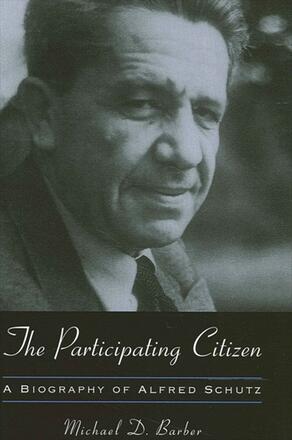
The Participating Citizen
A Biography of Alfred Schutz
Alternative formats available from:
An in-depth biography of the philosopher who brought phenomenology to the social sciences.
Description
Winner of the2007 Edward Goodwin Ballard Book Prize in Phenomenology presented by the Center for Advanced Research in Phenomenology with interest from a fund raised from Professor Ballard's family, students, and friends
Vienna-born philosopher and social scientist Alfred Schutz (1899–1959) is primarily responsible for applying to the social sciences the resources of phenomenology, the prominent philosophical movement begun by Edmund Husserl in the early twentieth century. Drawing on previously unavailable letters, this biography depicts Schutz's childhood, adolescence, first visit to the United States, struggle to secure asylum for family and friends after the Austrian Anschluss, family and business life, and connections with phenomenologists worldwide, the New School for Social Research, and close friends. As a philosophical biography, it examines the ethical dimensions of his philosophical work, including its resistance to ethical theory, and shows how during the civil rights movement he articulated a standard for assessing democracy in terms of ability to facilitate individual citizen participation.
Michael D. Barber is Professor of Philosophy at St. Louis University and the author of several books, including Equality and Diversity: Phenomenological Investigations of Prejudice and Discrimination.